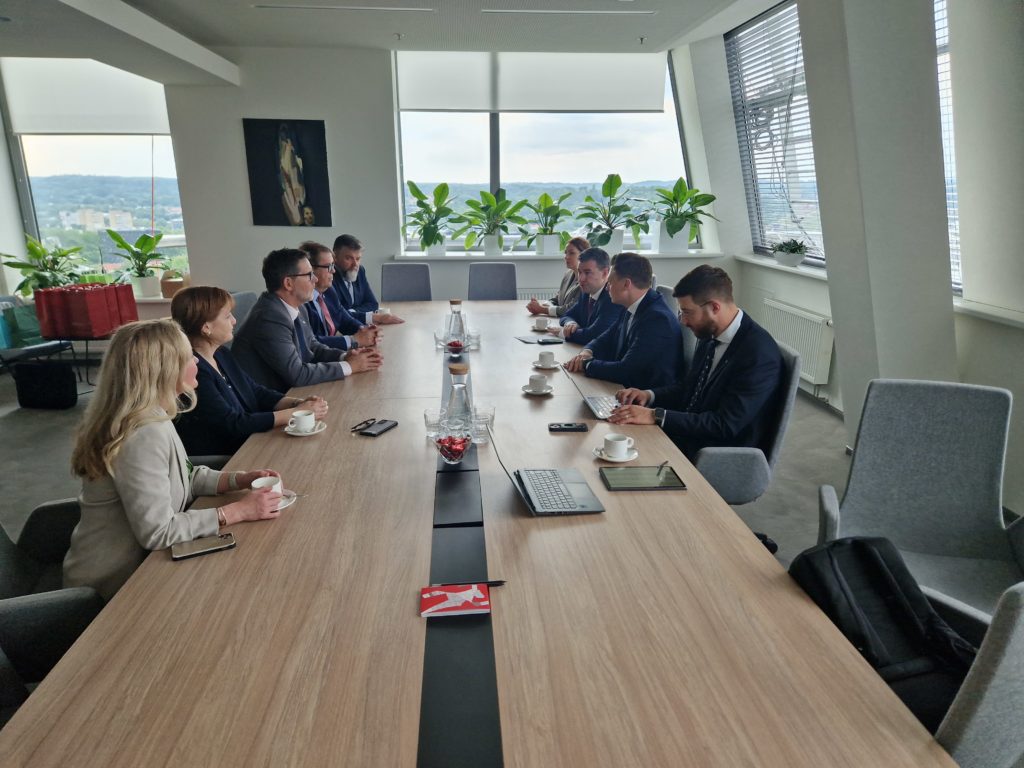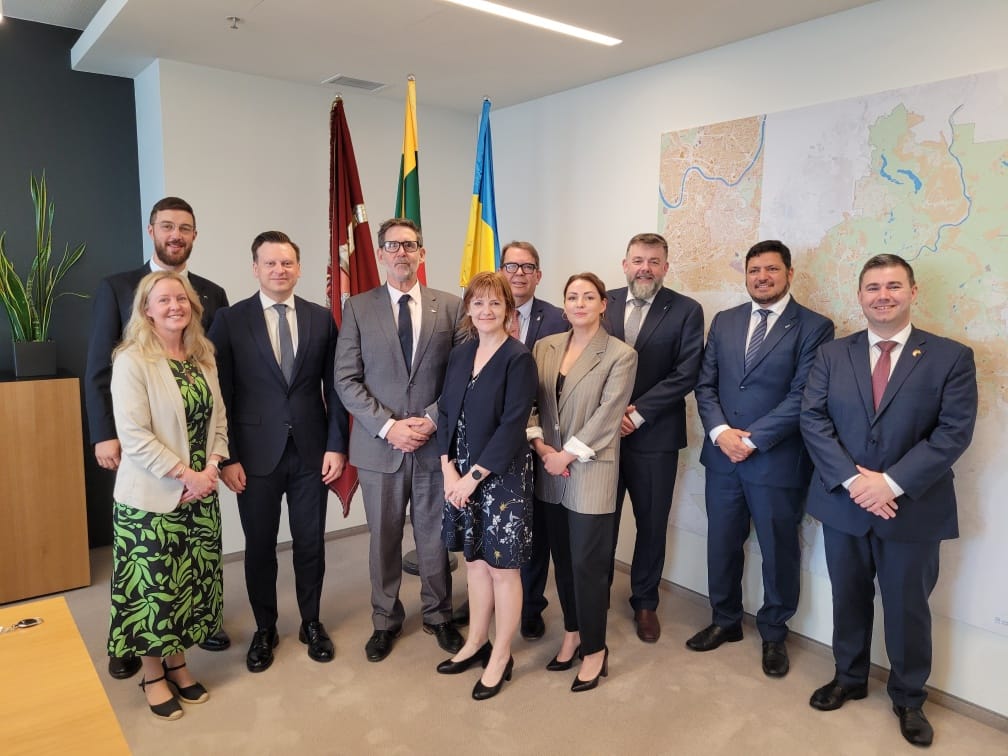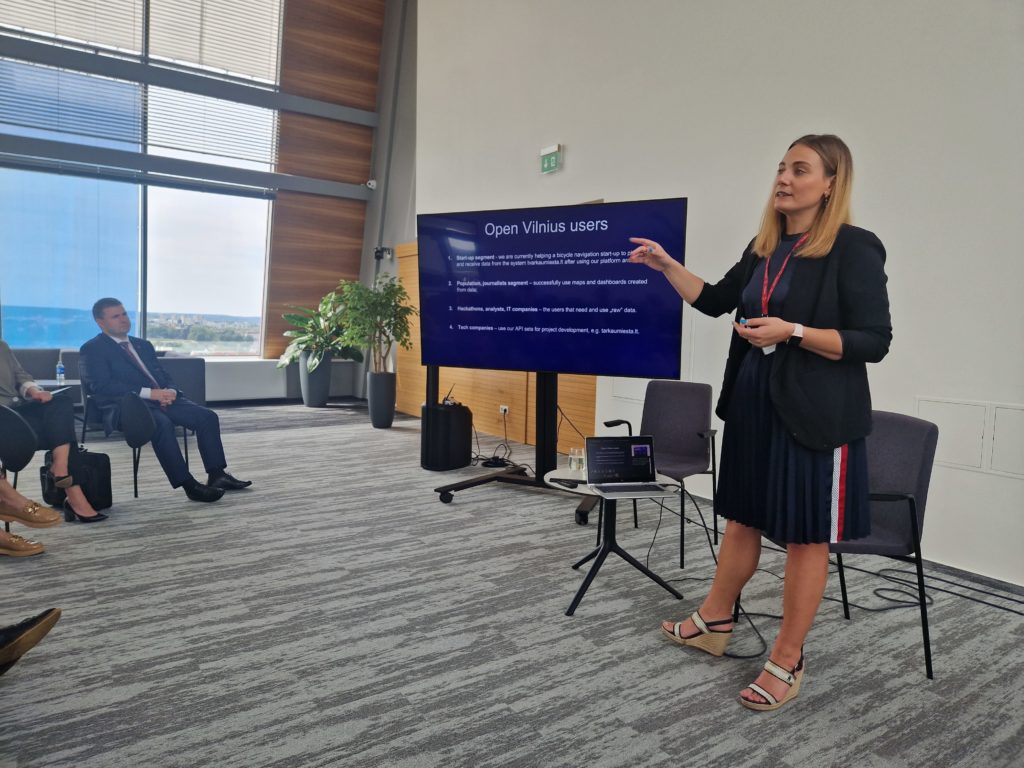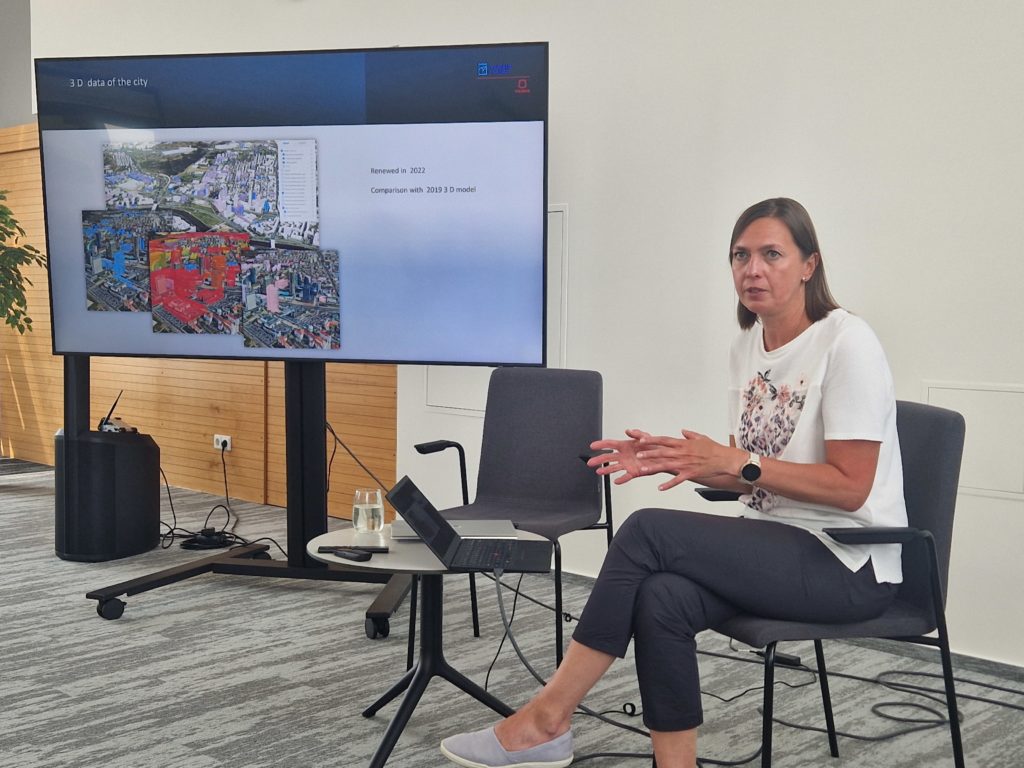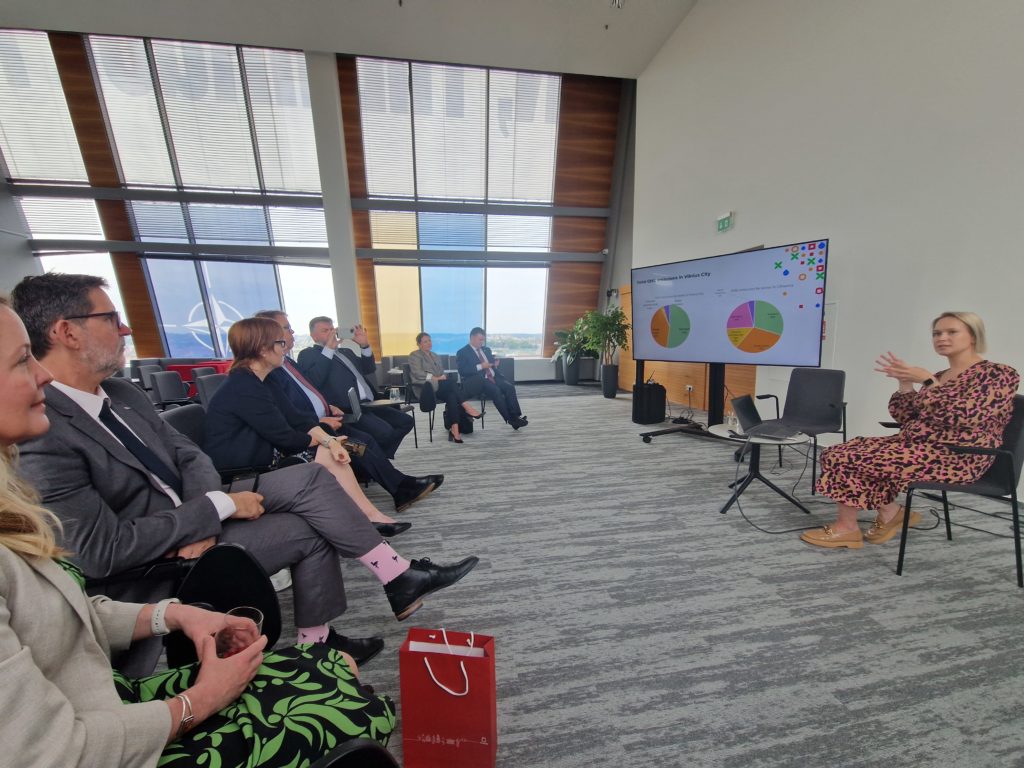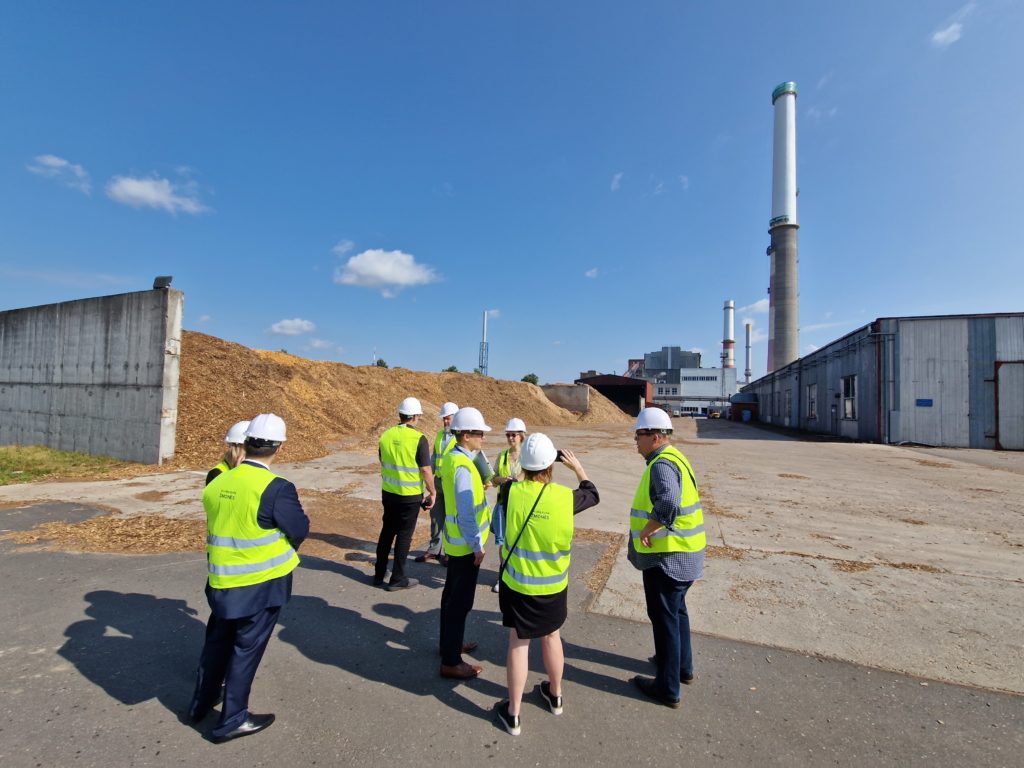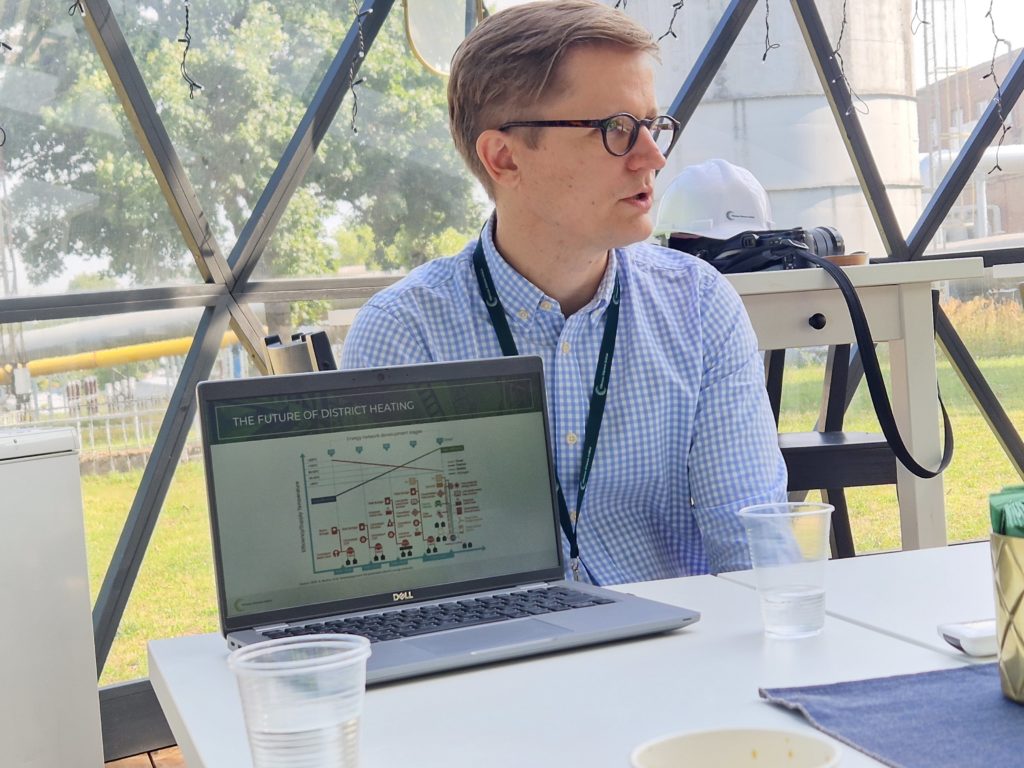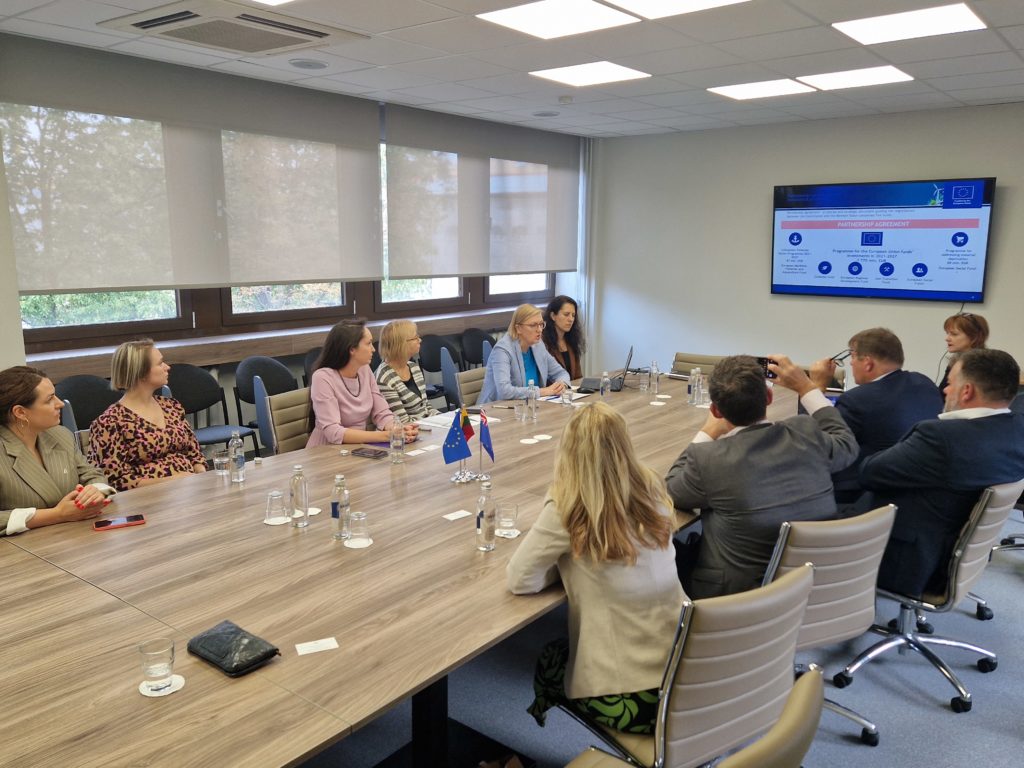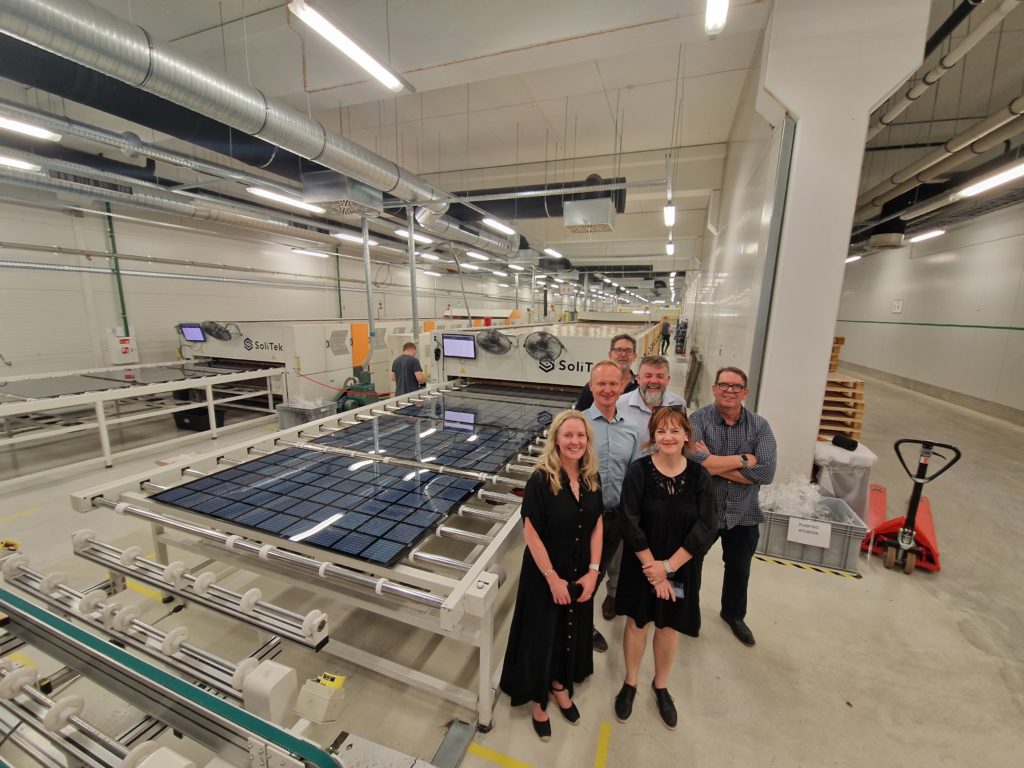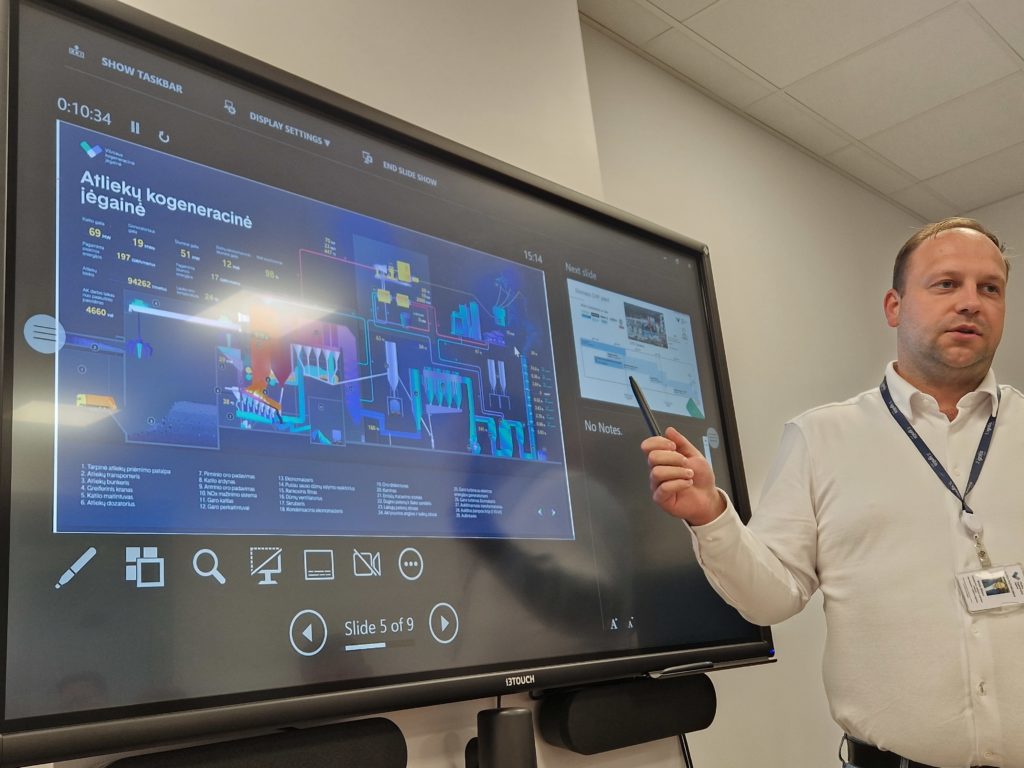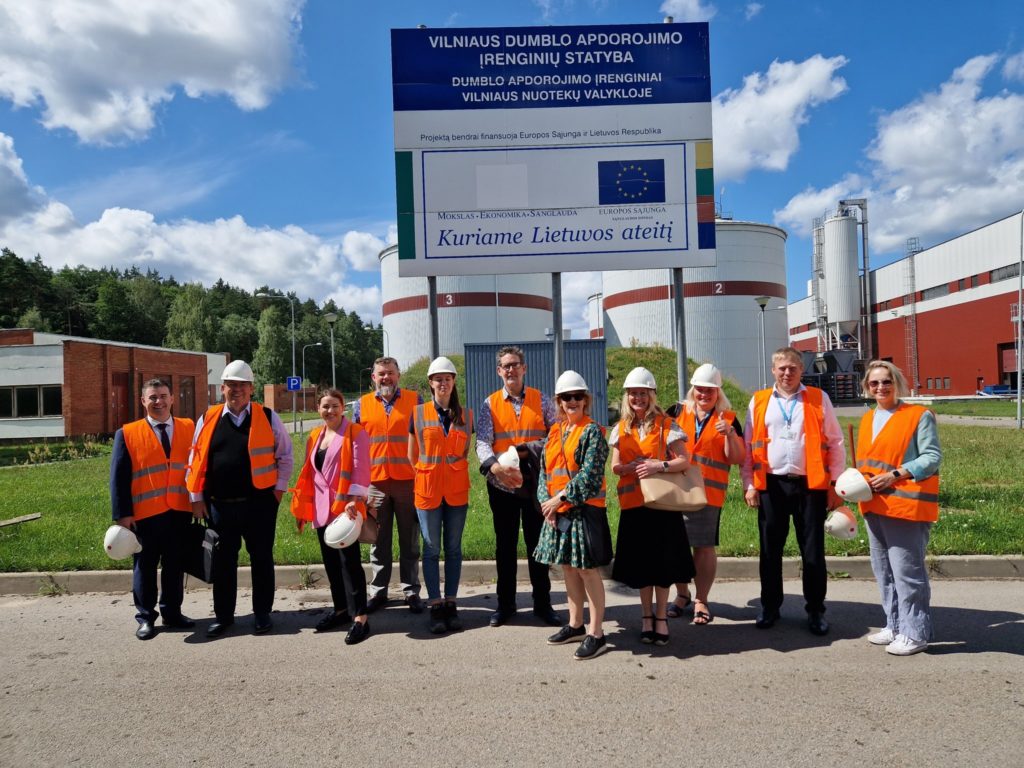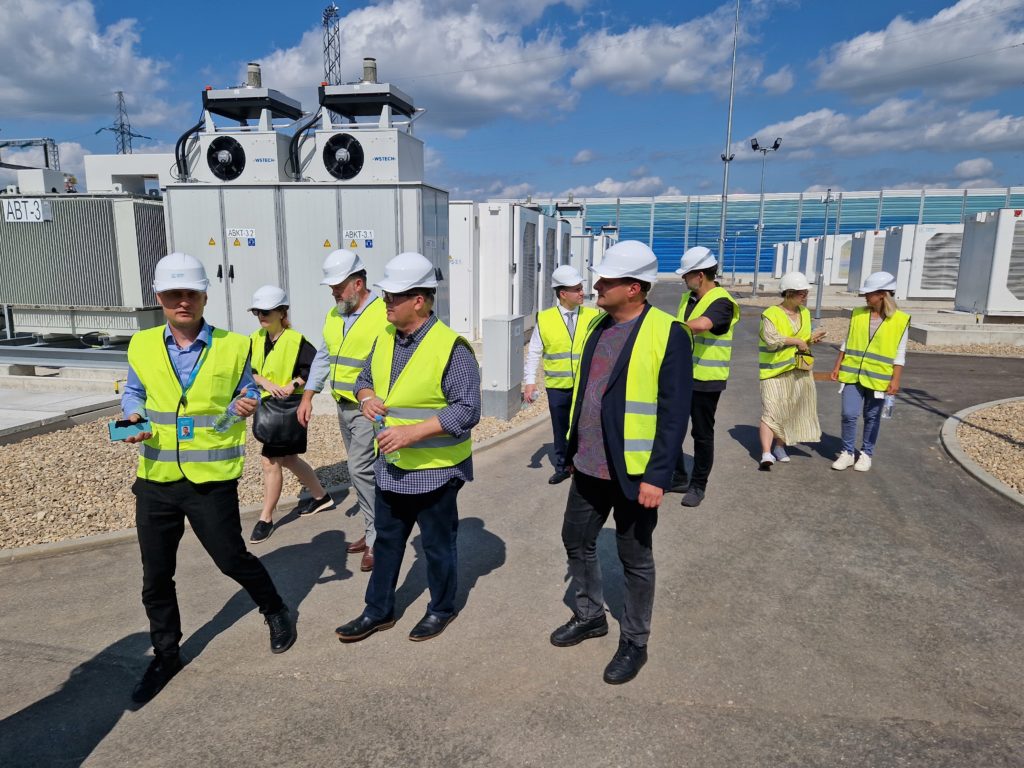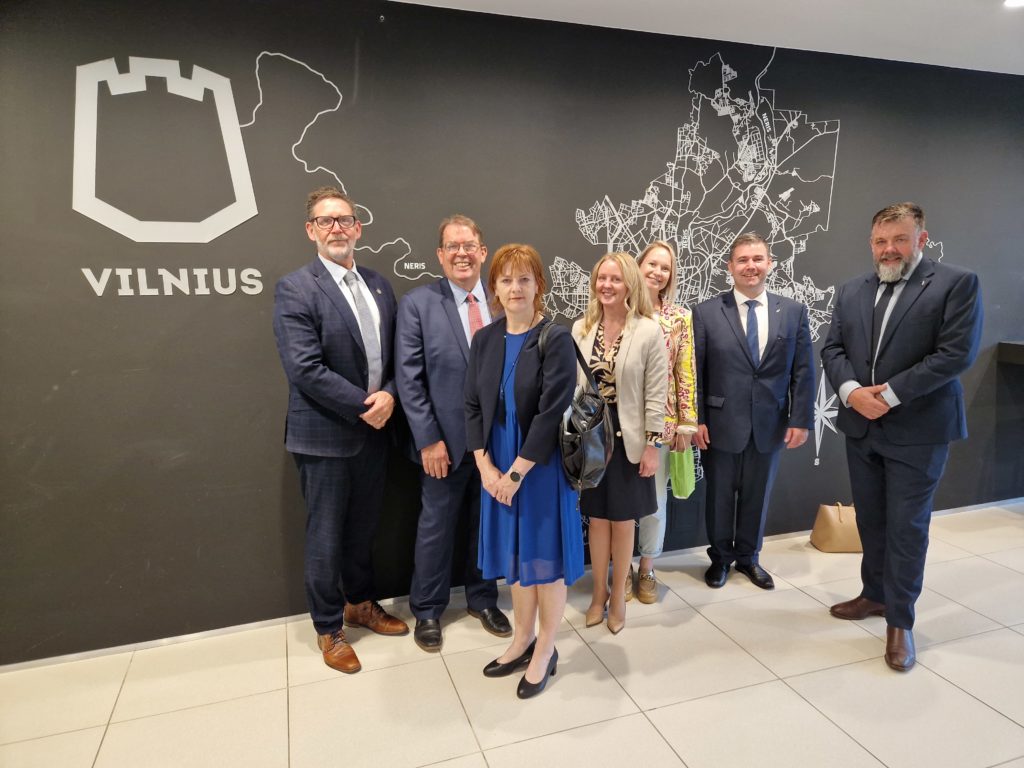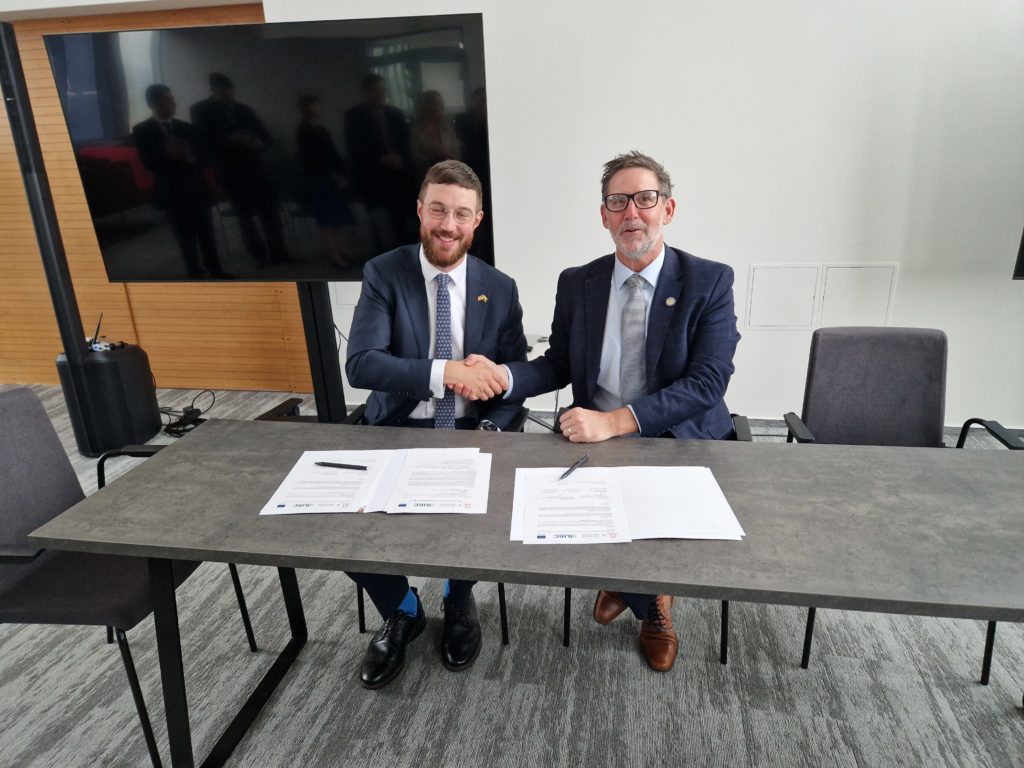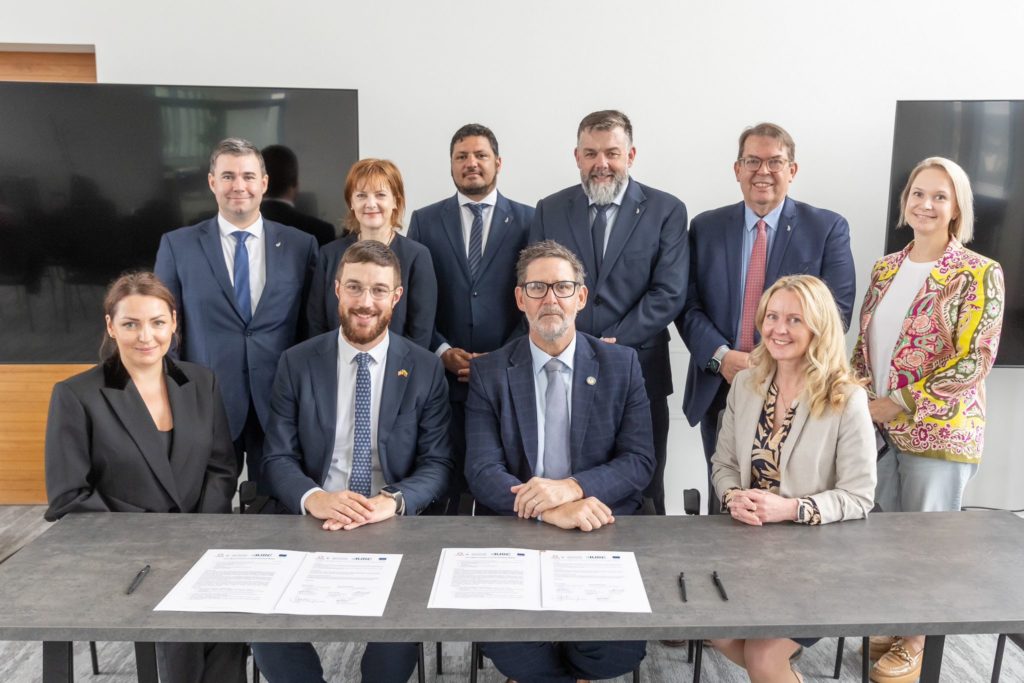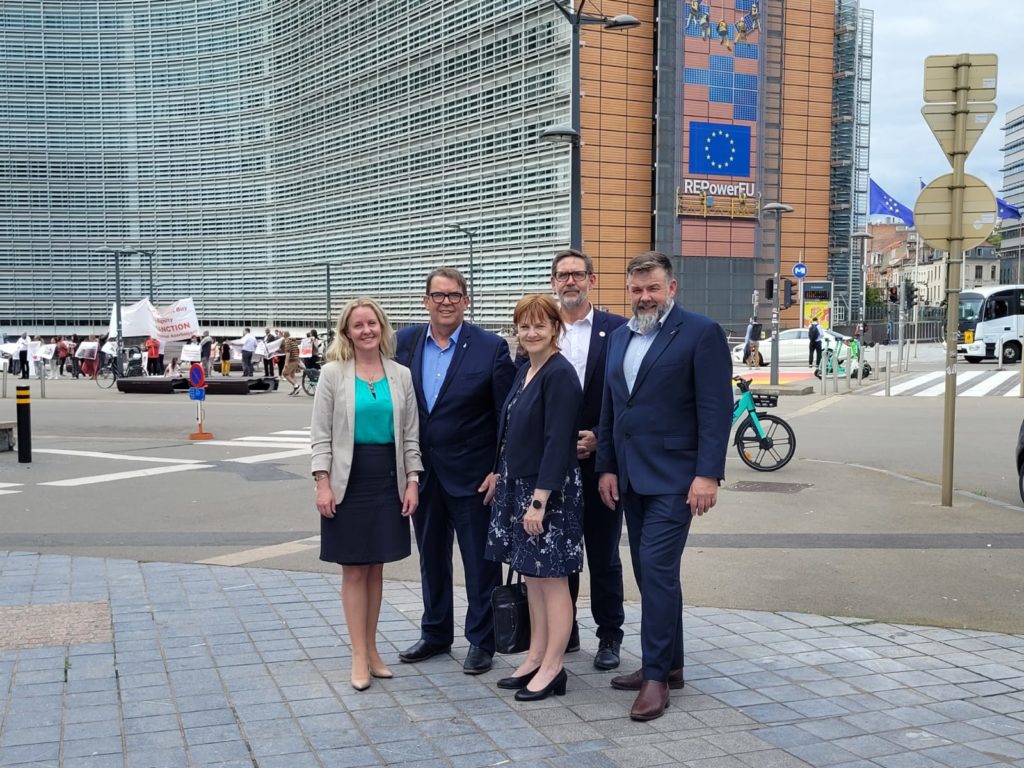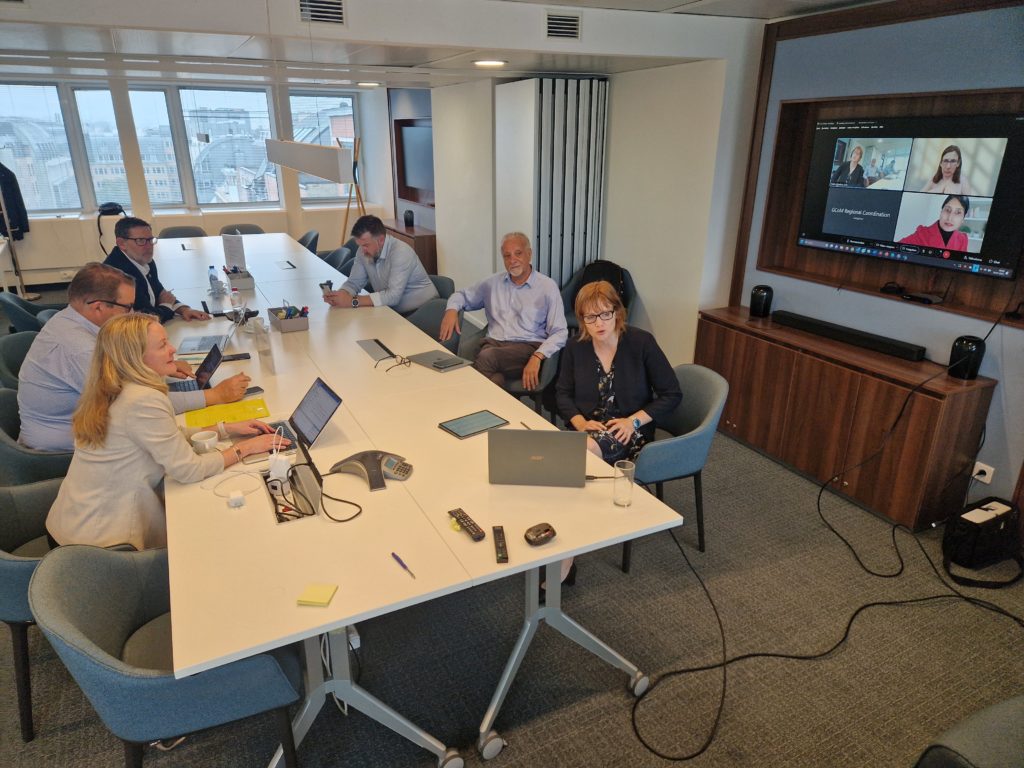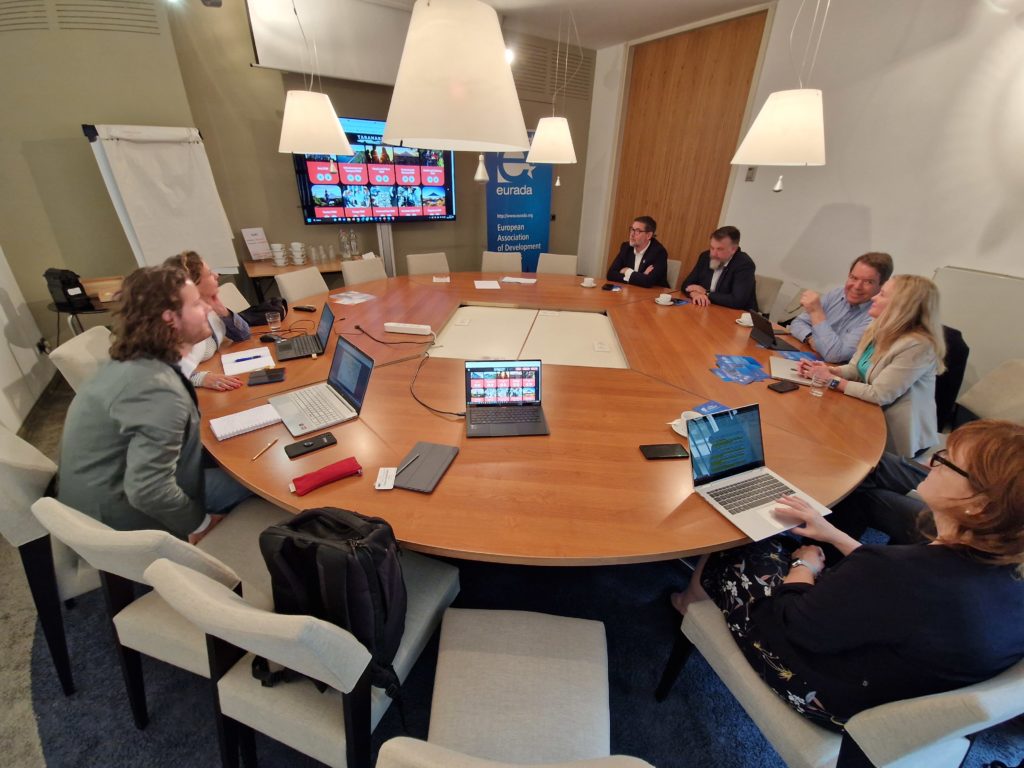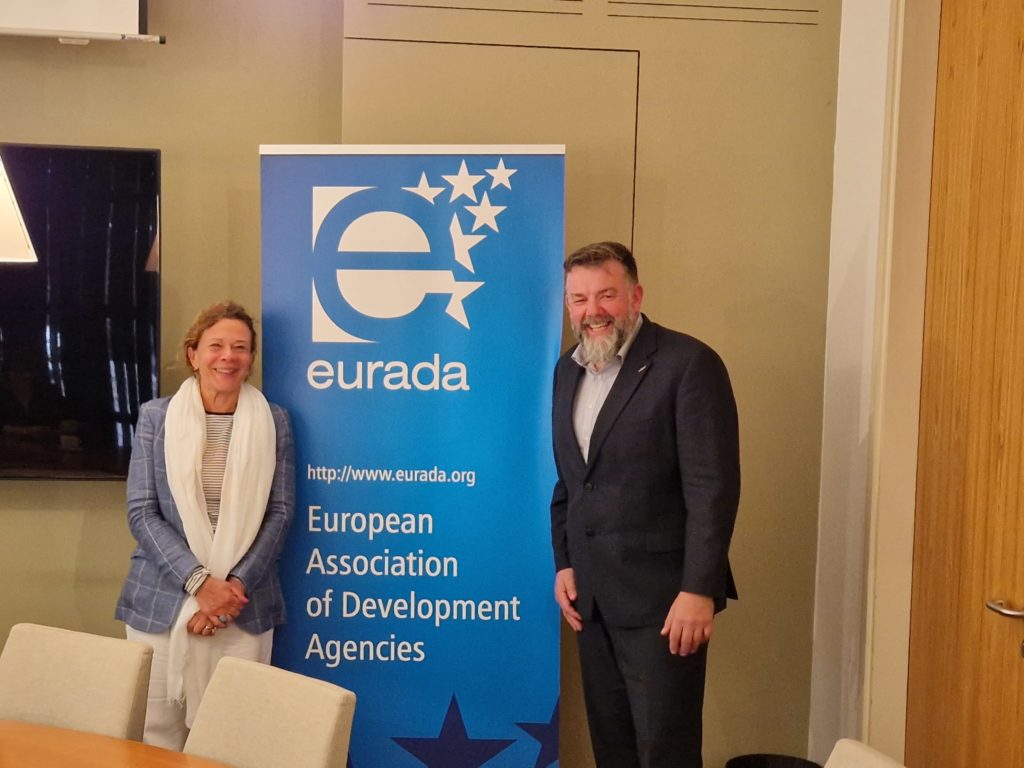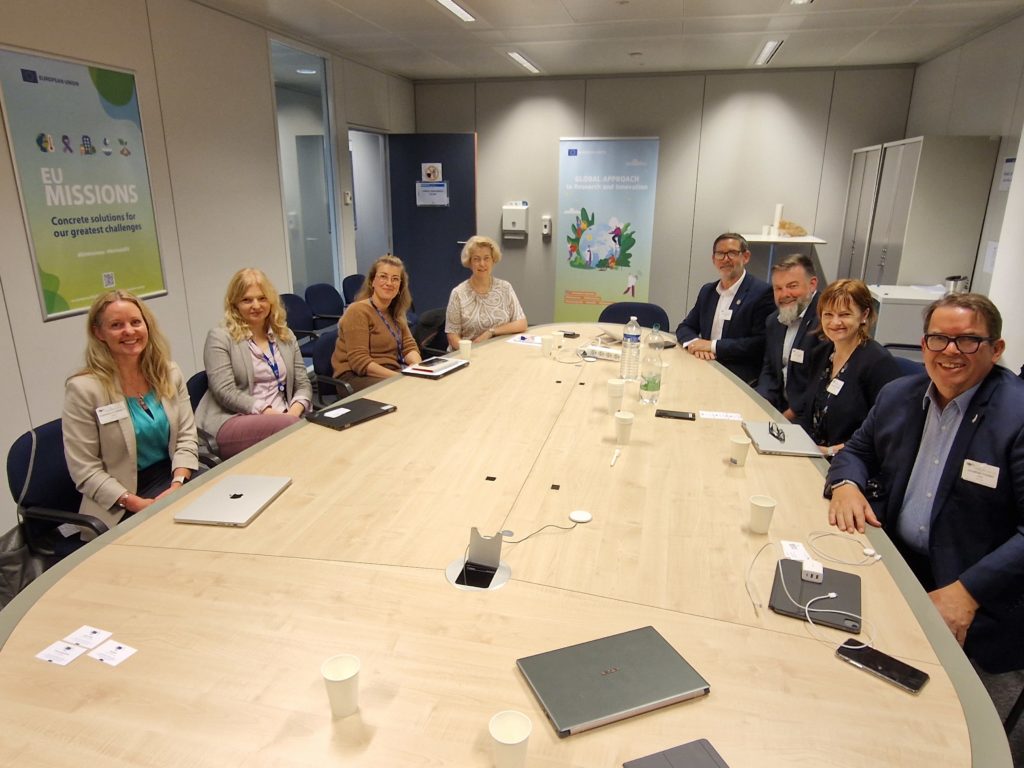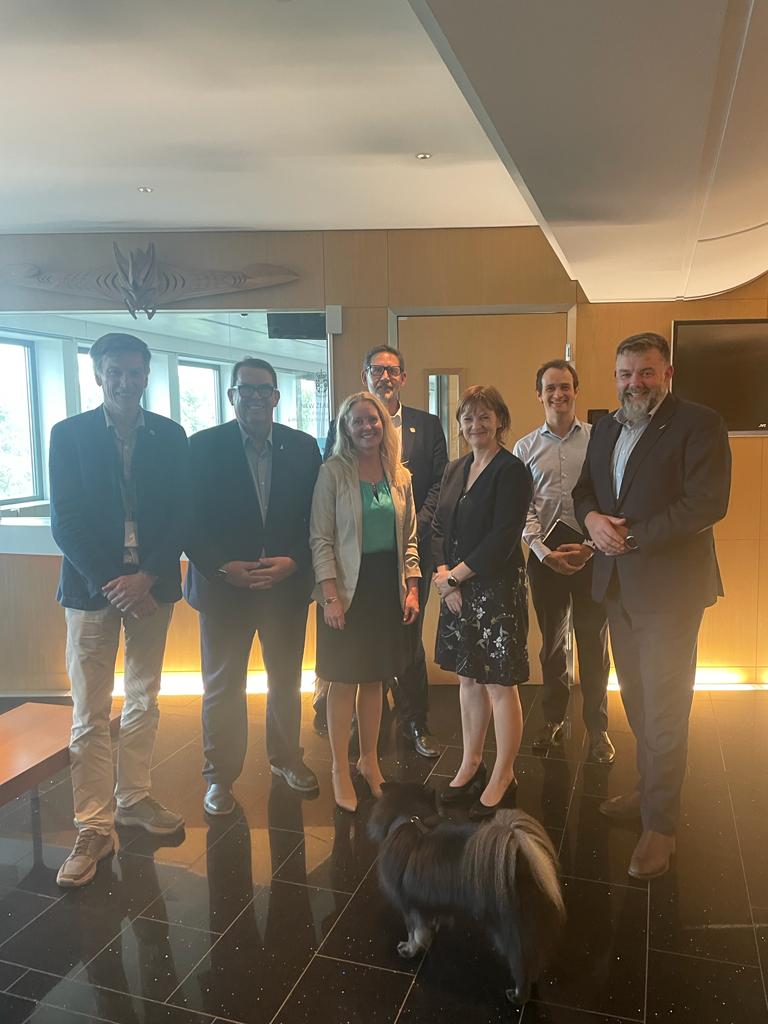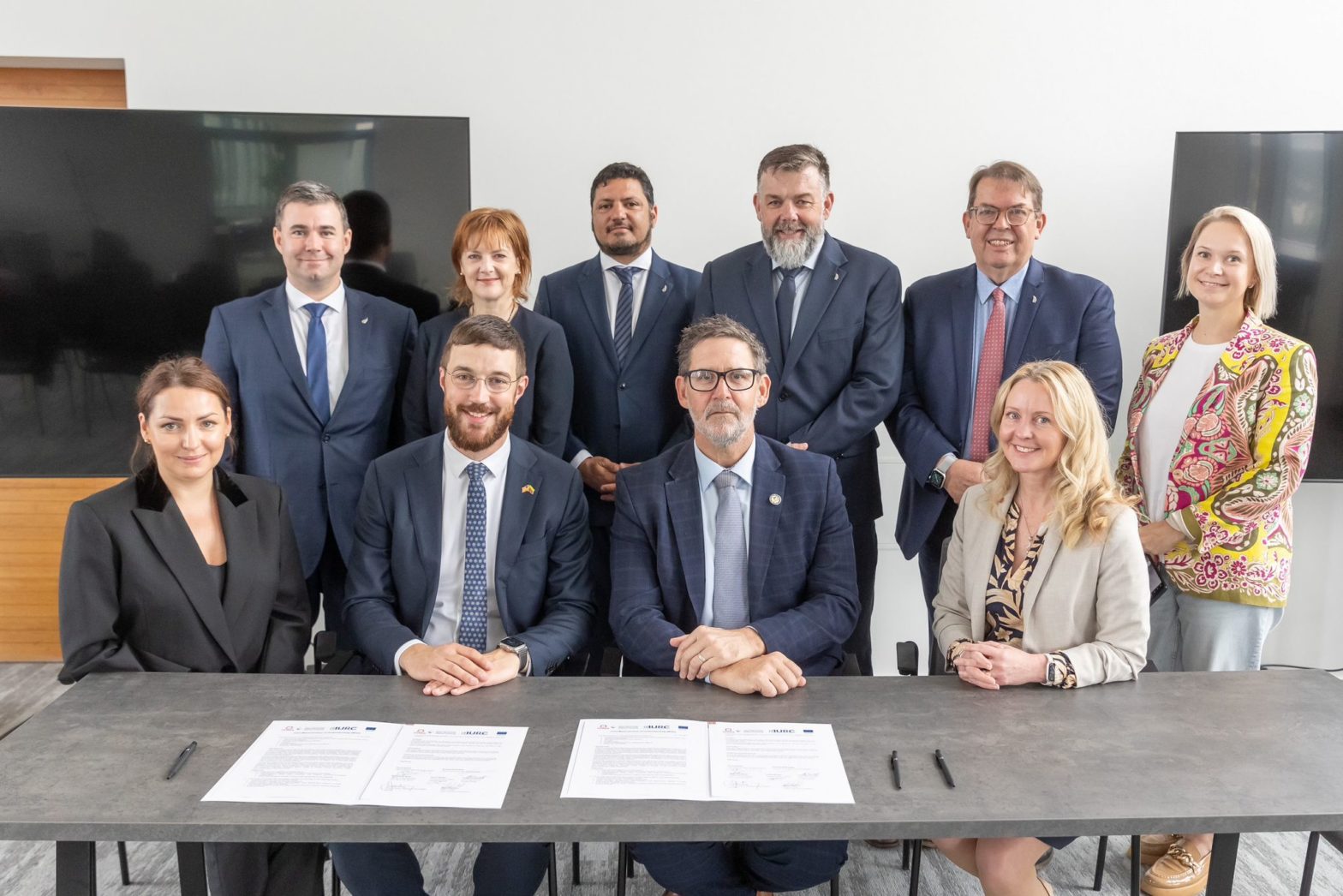Led by Deputy Mayor David Bublitz, a delegation from New Plymouth District Council and affiliated institutions visited counterparts in Vilnius to exchange views about energy transition, climate action and smart city developments. The 4-day study visit (which followed a visit of Vilnius delegates to New Plymouth in 2022) led to the signing of an MoU between both sides with concrete areas and exchange modus.
For over a century, New Plymouth has been the energy capital of New Zealand, known as the home of both black gold (oil) and white gold (milk). In 2018, a new long-term economic strategy, Tapuae Roa, was announced to initiate a Just Transition to a low emissions future. The strategy works with Taranaki’s 2050 roadmap, which has 12 transitional pathways including Energy, Food and Maori economy.
The delegation from New Plymouth included senior representatives from Ara Ake (New Zealand’s centre for the commercialisation of green technology), Hiringa Energy (an innovative energy company focusing on green hydrogen) as well as Venture Taranaki, the regional development agency. The programme meetings enabled New Zealand delegates to learn in-depth how Vilnius is currently implementing sustainable urban solutions (goals, challenges, governance, approaches, triple-helix cooperation, etc.) and to assess their relevance for concrete cooperation with New Plymouth.
Meetings in Vilnius started at the municipality headquarters with Mayor Valdas Benkunskas and senior administration staff including Director Adomas Bužinskas. Mayor Benkunskas – who visited New Plymouth in 2022 – introduced Vilnius’s main challenges, solutions and plans in the areas of public transportation, circular economy, central heating, urban retrofitting and the use of renewable energy. Deputy Mayor Bublitz and New Plymouth colleagues expressed their challenges in achieving a more circular economy model as well as the progress on hydrogen energy usage for transportation and aviation. Experts from both sides then discussed city management (open data), smart city solutions (digital twins, use of drones, etc) and climate action (Vilnius is one of the 100 climate-neutral and smart European cities by 2030).
During the next 4 days, the New Zealand delegates met with experts from public and private companies, research and the public sector. Counterparts included Vilnius Water, the Innovation and Technology Group, the Ministry of Finance, Vilnius City District Heating Company, Energy Cells, SoliTek (BOD Group), Vilnius Public Mobility and Vilnius Heat and Power Plant. New Plymouth delegates were also able to visit the Paupys district.
The visit was organised by senior staff of Vilnius municipality, including directors Ilja Karuzis, Eglė Randytė and Agnes Eigminiene. The project team would like to express its gratitude for your outstanding support!
Social Media
Details of most meetings in Vilnius were communicated on social media (Twitter – external content):
- Meeting with City Mayor, management and climate action teams: https://twitter.com/iurc_aa/status/1683478078230609921?s=20
- Meeting with Digital Twins, Infrastructure team: https://twitter.com/iurc_aa/status/1683492860467748865
- Meeting at Ministry of Finance: https://twitter.com/iurc_aa/status/1683497298368626691?s=20
- Visit to Vilnius Paupys district: https://twitter.com/iurc_aa/status/1683502772409212931?s=20
- Visit to Vilnius City District Heating Company: https://twitter.com/iurc_aa/status/1683775135415762944?s=20
- Visit to “Energy Cells”: https://twitter.com/iurc_aa/status/1683809878207242241?s=20
- Visit to BOD Group Headquarters & production site: https://twitter.com/iurc_aa/status/1683960989664911360?s=20
- Visit to Traffic Control Center & LEED platinum-certified green building: https://twitter.com/iurc_aa/status/1684115912637419520?s=20
- Visit to Vilnius Water Company (including video statement by David and Jacqueline): https://twitter.com/iurc_aa/status/1684187344801349633?s=20
- Visit to Combined Heat and Power Plant (including video statement by Kelvin Wright): https://twitter.com/iurc_aa/status/1684450141468590080?s=20
- Meeting about Green Hydrogen Energy and Mobility (including video statements by Catherine Clennett and Jonathan Young): https://twitter.com/iurc_aa/status/1684492067379073026?s=20
- Wrap-up Meeting and Signing of MoU: https://twitter.com/iurc_aa/status/1684531874687864832?s=20
Video Statements in Twitter (external content)
- Video Statement by David Bublitz, Deputy Mayor, New Plymouth District: https://twitter.com/i/status/1684187344801349633
- Video Statement by Catherine Clennett, Executive Director, Hiringa Energy: https://twitter.com/iurc_aa/status/1684492067379073026/video/3
- Video Statement by Jacqueline Baker, Deputy Chief, Executive New Plymouth District: https://twitter.com/iurc_aa/status/1684187344801349633/video/2
- Video Statement by Jonathan Young, Head of Policy, Research and Insights, Ara Ake: https://twitter.com/i/status/1684492067379073026
- Video Statement by Kelvin Wright, Chief Executive Officer, Venture Taranaki: https://twitter.com/i/status/1684450141468590080
Meetings in Brussels
After 4 days of meetings in the Lithuanian capital, the New Zealand experts conducted a series of meetings in Brussels, including the Global Covenant of Mayors for Climate and Energy (GCoM) and EURADA, the European Association of Development Agencies. Moreover, delegates had a targeted meeting with the EU Commission (DG Research and Innovation, RTD) to learn about possible collaboration within the EU Horizon Europe programme, which New Zealand has recently associated with. They also visited New Zealand’s Mission to the European Union to report the study visit’s results.
- Meeting with EU Commission (DG RTD / Horizon Europe), Eurada, GCoM, NZ Embassy: https://twitter.com/iurc_aa/status/1684932816453197825?s=20
- Farewell tweet about the whole study visit: https://twitter.com/iurc_aa/status/1684942421497425920?s=20
